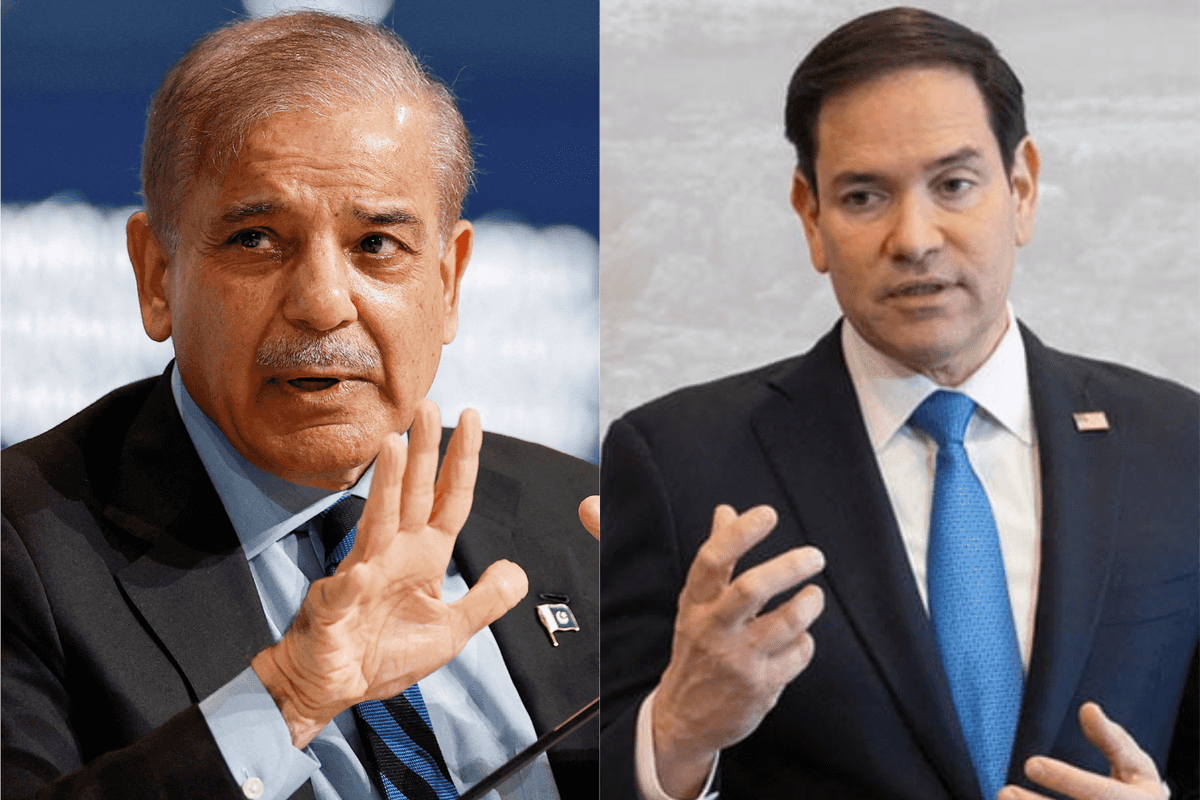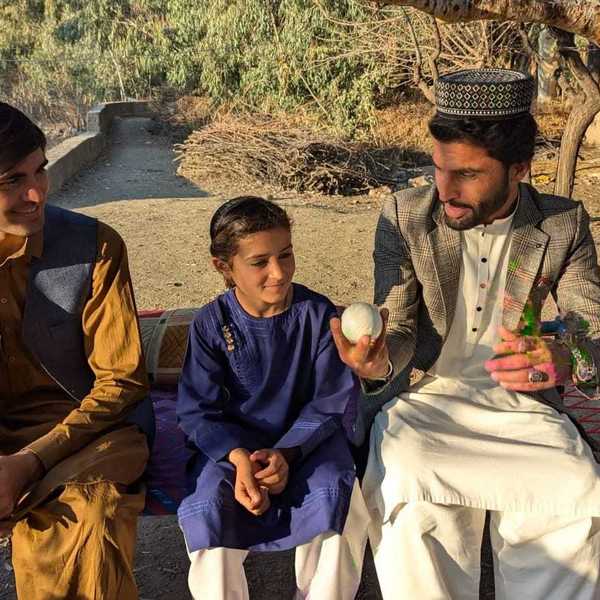India’s provocations undermine anti-terror efforts, Pakistan PM tells Rubio
Prime Minister Shehbaz urges the US to rein in India after Pahalgam attack, warns against water weaponization

Javed Hussain
Correspondent
I have almost 20 years of experience in print, radio, and TV media. I started my career with "Daily Jang" after which I got the opportunity to work in FM 103, Radio Pakistan, News One, Ab Tak News, Dawn News TV, Dunya News, 92 News and regional channels Rohi TV, Apna Channel and Sach TV where I worked and gained experience in different areas of all three mediums. My journey from reporting to news anchor in these organisations was excellent. Now, I am working as a correspondent with Nukta in Islamabad, where I get the opportunity of in-depth journalism and storytelling while I am now covering parliamentary affairs, politics, and technology.

Prime Minister Shehbaz Sharif on Wednesday held a telephonic call with with U.S. Secretary of State Marco Rubio.
Reuters/file
Prime Minister Shehbaz Sharif urged the United States to press India to de-escalate tensions following the recent Pahalgam incident during a phone call Wednesday evening with U.S. Secretary of State Marco Rubio, according to an official statement.
Sharif extended greetings to Rubio and conveyed good wishes for President Donald Trump. He expressed Pakistan’s desire to work closely with the new U.S. administration on shared interests.
During the call, the prime minister shared Pakistan’s perspective on recent developments in South Asia, condemning terrorism in all forms. He highlighted the country's role in the global fight against terrorism, citing more than 90,000 lives lost and over $152 billion in economic damage.
Sharif said India’s "escalatory and provocative behavior" was “deeply disappointing and worrisome.” He warned that such actions would only distract Pakistan from its counterterrorism operations, particularly against groups like ISKP, TTP, and BLA, which he said operate from Afghan territory.
He firmly rejected India’s attempt to link Pakistan to the Pahalgam incident and repeated his call for a “transparent, credible, and neutral investigation.” He called on the United States to urge India to “dial down the rhetoric and act responsibly.”
The prime minister also criticized what he called India’s “weaponization of water,” warning that any unilateral moves to alter commitments under the Indus Waters Treaty endangered the lifeline of 240 million Pakistanis. He emphasized that the treaty provides no option for either side to back out unilaterally.
Sharif underscored the need for a peaceful resolution to the Jammu and Kashmir dispute, calling it essential for lasting peace in South Asia.
On bilateral ties, the prime minister noted that Pakistan and the U.S. had worked closely over the past 70 years. He called for deeper cooperation in counterterrorism and economic sectors, especially mining.
He also briefed Rubio on recent economic reforms undertaken by his government, stating that Pakistan was now on a path to recovery.
Secretary Rubio thanked Sharif for the detailed conversation and said the U.S. valued continued cooperation for regional peace and stability.
U.S. President Donald Trump has sought to downplay the tensions and said that the dispute would get "figured out, one way or another".
Pahalgam incident
At least 24 people were killed in Indian-administered Kashmir when gunmen opened fire on tourists last week, with authorities calling it the worst attack on civilians in years.
Prime Minister Narendra Modi decried the "heinous act" in the summer retreat of Pahalgam, pledging that the attackers "will be brought to justice".
The attack targeted tourists in Pahalgam, which lies about 90 kilometers (55 miles) by road from the key city of Srinagar.
The killings come a day after Modi met with U.S. Vice President JD Vance, who is on a four-day tour of India.
Following the attack, India suspended the decades-old Indus Waters Treaty with Pakistan and gave Pakistani nationals 48 hours to leave the country. The decision was made at a high-level meeting of the Cabinet Committee on Security (CCS), chaired by Prime Minister Narendra Modi.
Pakistan's response
Pakistan rejected India's baseless allegations and called for an independent and neutral investigation of the Pahalgam incident.
Prime Minister Shehbaz Sharif said on Saturday that Pakistan is prepared to cooperate in an impartial investigation into the Pahalgam incident, but warned that any attempt to undermine the country's sovereignty or cut off its water supply under the Indus Waters Treaty would be met with "full force".
Speaking at the passing-out parade at the Pakistan Military Academy in Kakul, Sharif reiterated that while Pakistan desires peace, it should not be mistaken for weakness. He said the country’s armed forces are fully prepared to defend the country's security and sovereignty at all costs.
Deputy Prime Minister and Foreign Minister Ishaq Dar, during a joint press conference with the military’s chief spokesperson and the foreign office spokesperson on Wednesday, shared Pakistan's concern about growing tensions in the region.
“As we speak, the entire region is facing a serious threat to peace and stability,” Dar said in Islamabad. “This is due to the politically motivated and provocative environment being created by India in the wake of the Pahalgam attack.”
Dar added that Pakistan has nothing to do with the Pahalgam incident, “We demand an independent and transparent probe by neutral investigators, as already announced by Prime Minister Shehbaz Sharif”, he said.
Dar’s remarks came a day after Pakistan’s military accused India of sponsoring terrorism inside Pakistan.
Lt-Gen Ahmed Sharif Chaudhry, the chief spokesperson for the army, claimed India was directing a cross-border network of operatives. He said the military had “irrefutable evidence” linking Indian army officers to attacks in Pakistan.
Tensions escalate
Tensions between nuclear-armed India and Pakistan have intensified, with troops from both sides exchanging fire along the Line of Control (LoC) in Kashmir, according to the Indian army.
According to Indian officials, "unprovoked" small arms fire was carried out by "multiple" Pakistan Army posts, prompting Indian troops to "respond appropriately". No casualties were reported.
There was no immediate confirmation from Pakistan, though both sides had acknowledged gunfire exchanges the previous night.
The United Nations has urged both India and Pakistan to exercise "maximum restraint" to avoid further escalation.







Comments
See what people are discussing